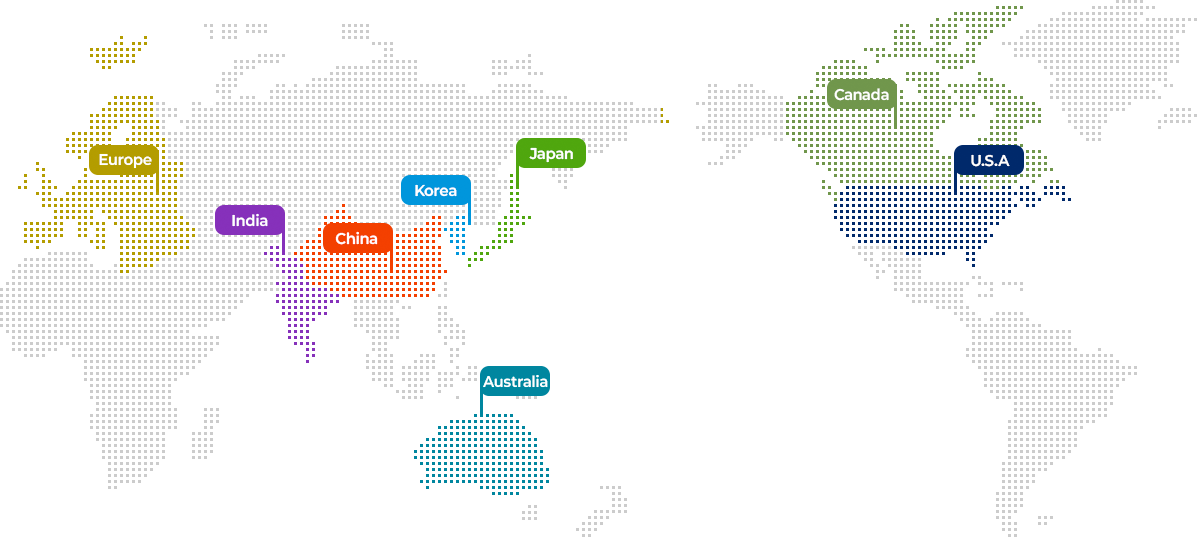Now is the time to approach cancer treatment by Understanding the unique characteristics of cancer
Revolutionizing Cancer Treatment by Target Stabilization
Innovative research shows that cancer cell survival can be compromised by protecting, activating, and accumulating essential genes. PearlsInMires develops next-generation anti-cancer drugs offering sustained effects and freedom from resistance and toxicity.
Science
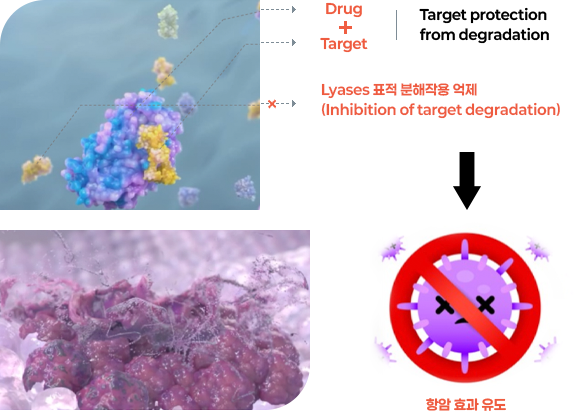
-
AConcept of target protection, activation and accumulation?
Cancer-specific target protection, activation and accumulation: a new frontier in an unexplored area
- From first-generation cytotoxic anti-cancer drugs to second-generation targeted therapies and third-generation immunotherapies, all existing treatments function as inhibitors
- Activation-type anti-cancer drugs represent a completely new approach that has never been developed or approved in the history of cancer treatment.
- Despite being cancer-specific targets, it is now recognized that anti-cancer effects can be induced by accumulating these targets.
- PearlsInMires is developing new drugs that can induce therapeutic effects through novel target activation and protection methods that have not been attempted before.
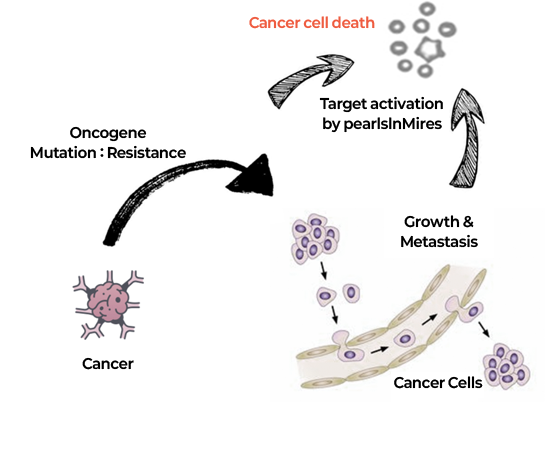
-
BWhat is the potential of target protection, activation, and accumulation?
Realizing anti-cancer technology free from toxicity and resistance
Target protection and activation can induce unique mechanisms that enable cancer cells to better perform their inherent functions. Since the mechanisms that drive aggressive growth in cancer cells are distinct from the functions of normal cells, this approach specifically targets cancer cells, resulting in minimal toxicity.
For cancer cells to respond to target activation, they must suppress target expression on their own. If the cancer-specific action is spontaneously reduced, it becomes free from anti-cancer drug resistance and allows the acquisition of normal cell characteristics.
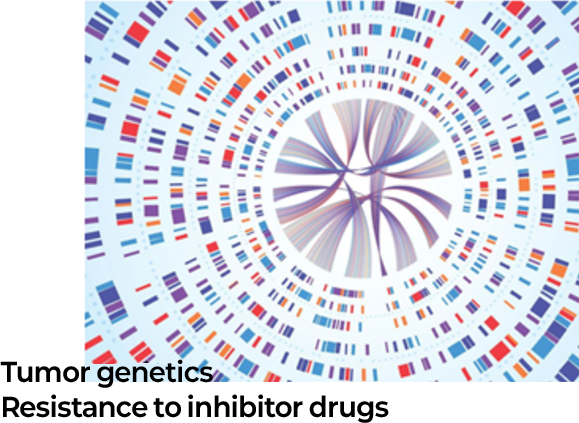
-
CHow do we discover targets?
PearlsInMires focuses on various cancer genes and anti-cancer resistance for target discovery.
A comprehensive approach to cancer genetics is essential for predicting best targets in drug development. New analytical methods have provided evidence that activating certain cancer pathways can induce vulnerabilities in cancer cell survival.
Clinical studies on resistance to existing inhibitors have shown that some cancers regress when the inhibitor is discontinued. This suggests that the anti-cancer effect may be induced by activating specific targets within cancer cells.
-
DHow do we turn ideas into medicine?
Designing drugs that can protect, activate, and accumulate targets involves several key theories
-
-
Cancer cells maintain homeostasis by activating specific targets while also keeping pathway activity at appropriate levels
-
Inhibition of the intrinsic mechanism possessed by cancer cells continuously induces several stages of regulatory mechanisms to escape from the inhibitors. Even under these regulations, various protective and hyperactive actions are prepared to ensure the correct level of cellular activity.
Drugs are administered to protect, activate, and accumulate targets essential for survival, thereby inducing the selective death of cancer cells. The protection and activation method involves disrupting the target degradation mechanism by inducing the reconstruction of endogenous peptides.
-
-
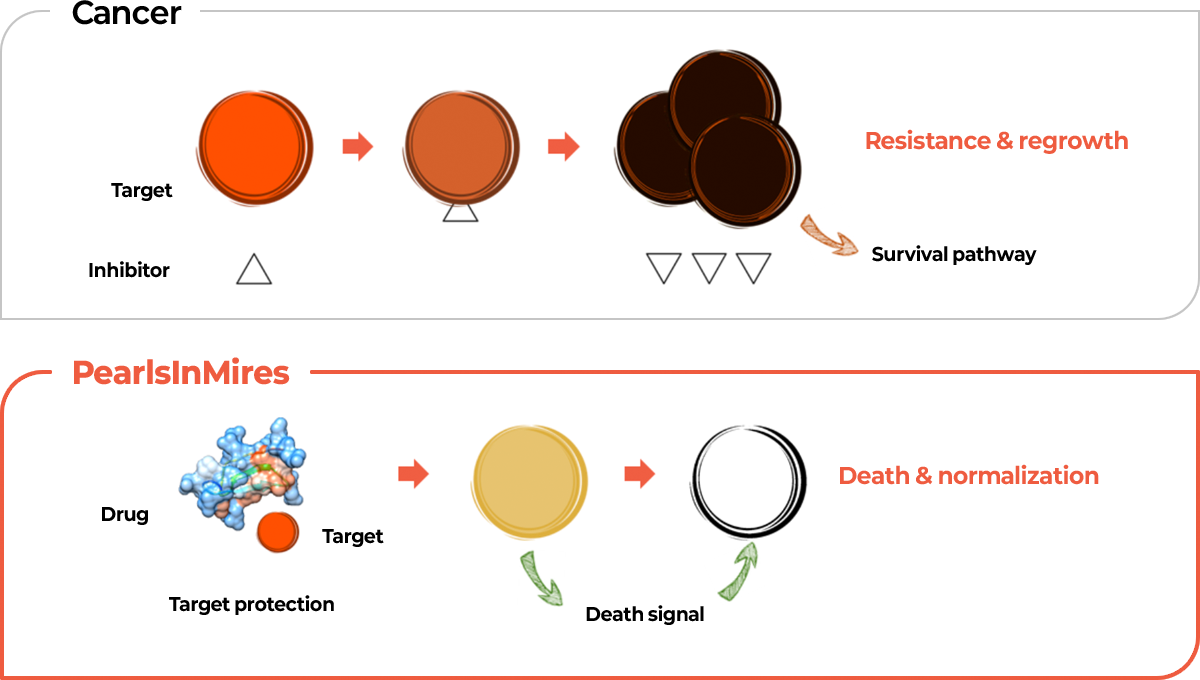
Core technology
Cancer Treatment
- Anticancer drug candidates with ADP-Ribose regulation
-
Category1
Activation lethality
- 15 items secured (First-in-class/NCE/Peptide, SM)
- Pearl-101 and -102 (MoA:Parthanatos & PARG Interference)
- Non-Clinical study +CMC (GLP tox)
- Business Discussing joint development (Korea)
Category2
Epigenetic control
- 8 items secured (First-in-class/NCE/Peptide)
- Early stage of Drug discovery (Screening/Target optimization)
- Preparing patent application
Category3
Regulation of cell signaling and gene expression
- 19 items secured (First-in-class/NCE/Peptide)
- Pearl-103 and 104 (MoA : Axin, TRF1 protection)
- Middle stage of Drug discovery (Screening/Target optimization)
- Preparing patent application
- A target: ADP-ribose (Essential for cancer survival, but triggers cancer cell death)
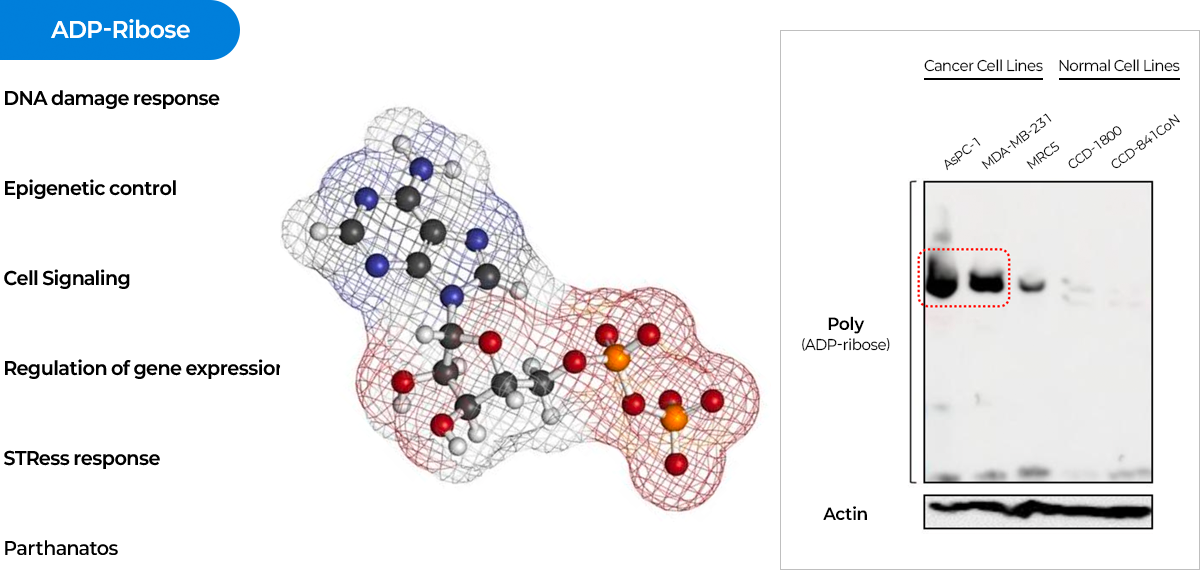
- Category 1: Mode of Action
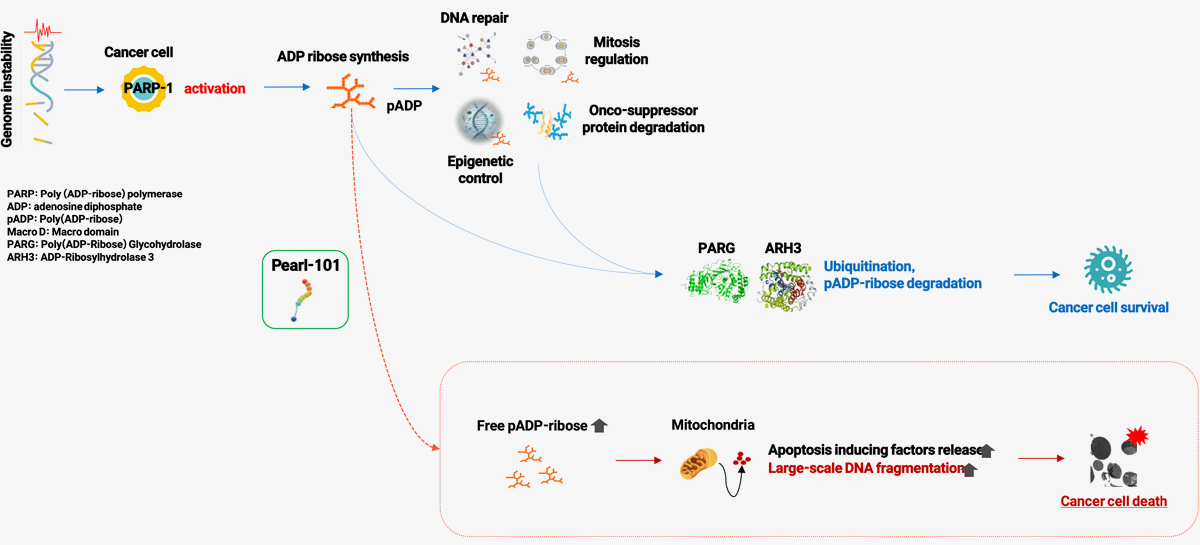
- Category 1: Validation of Pearl-101 Optimized Formulation -Target binding Analysis
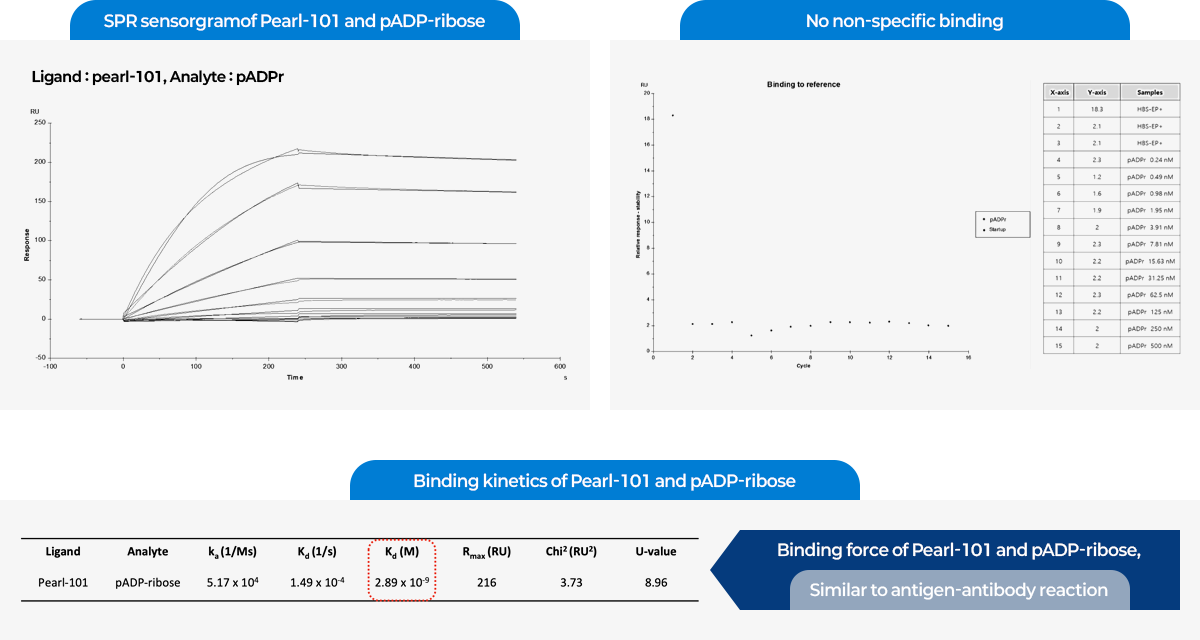
- Category 1: Validation of target accumulation in cancer cells by Pearl-101
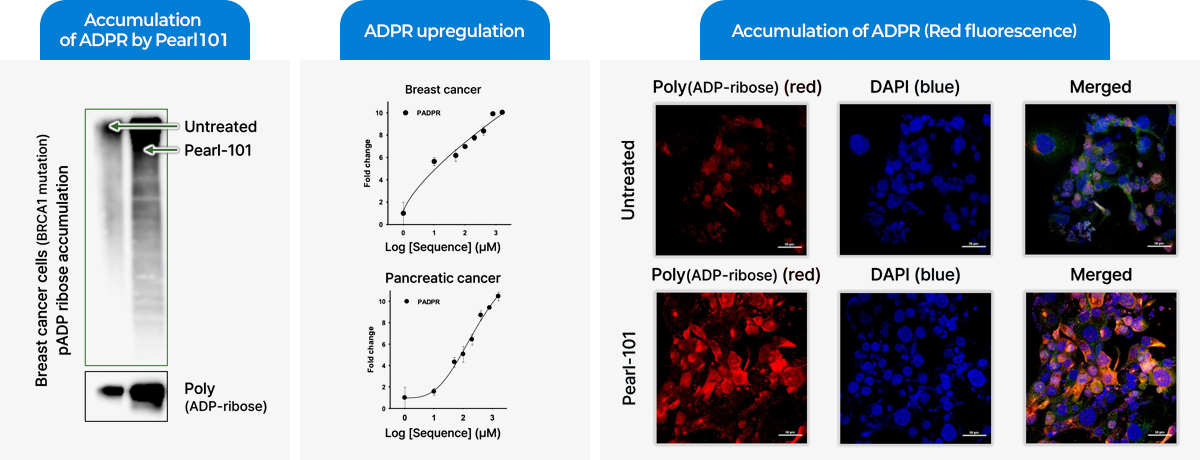
- Category 1: Interfering ADPR hydrolase, thereby an increase in cell death signal
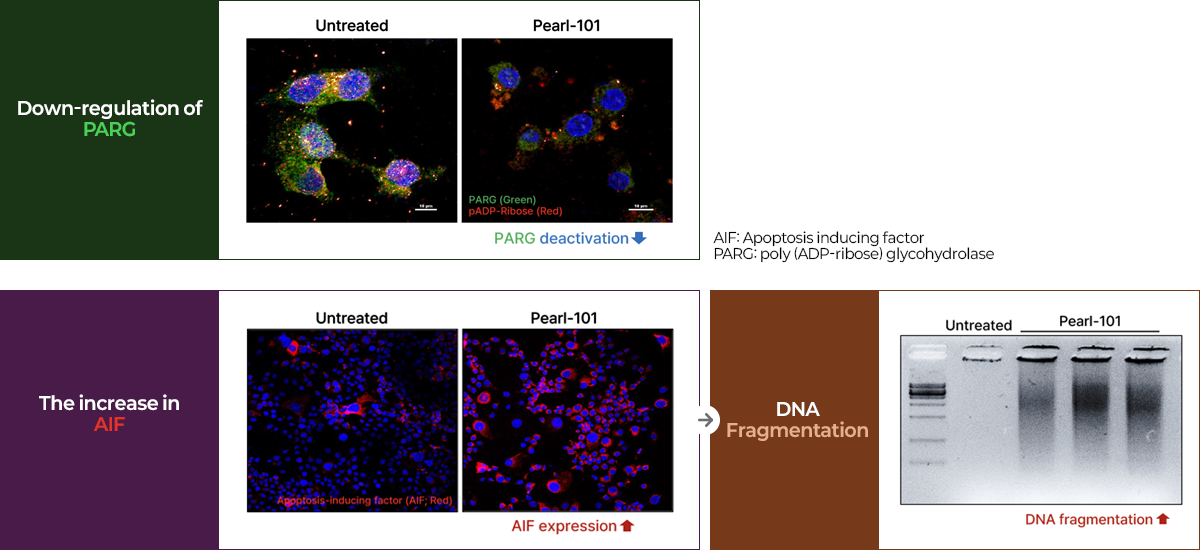
- Category 1: Pearl-101 anticancer effect on drug-resistant cancer cells
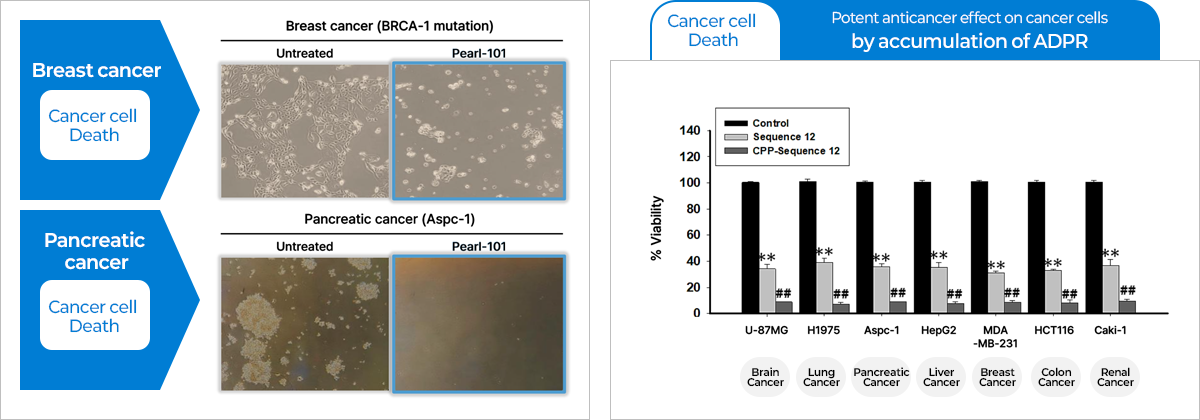
- Category 1: Pearl-101 anticancer effect by co-treatment
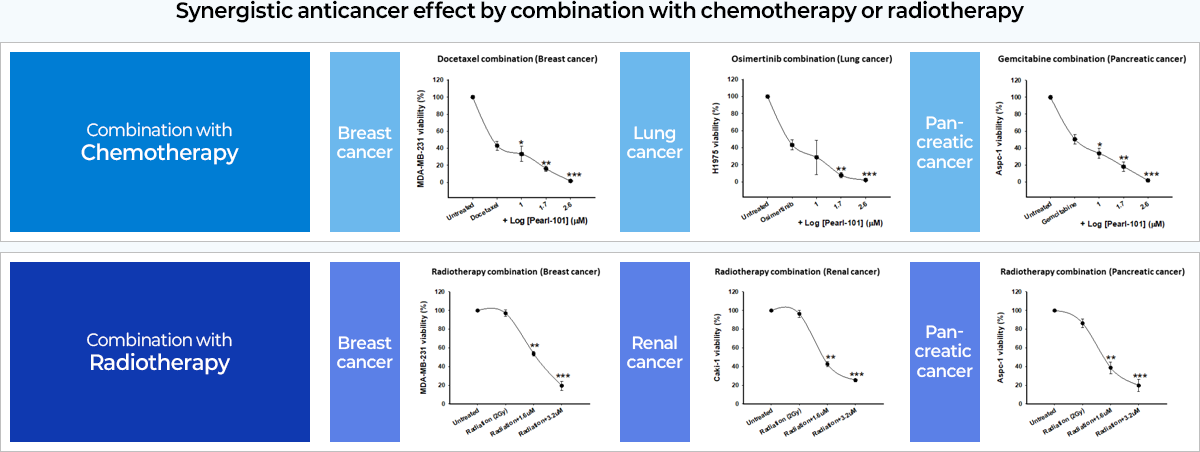
- Category 1: Pearl-101 anticancer effect on ovarian cancer cells
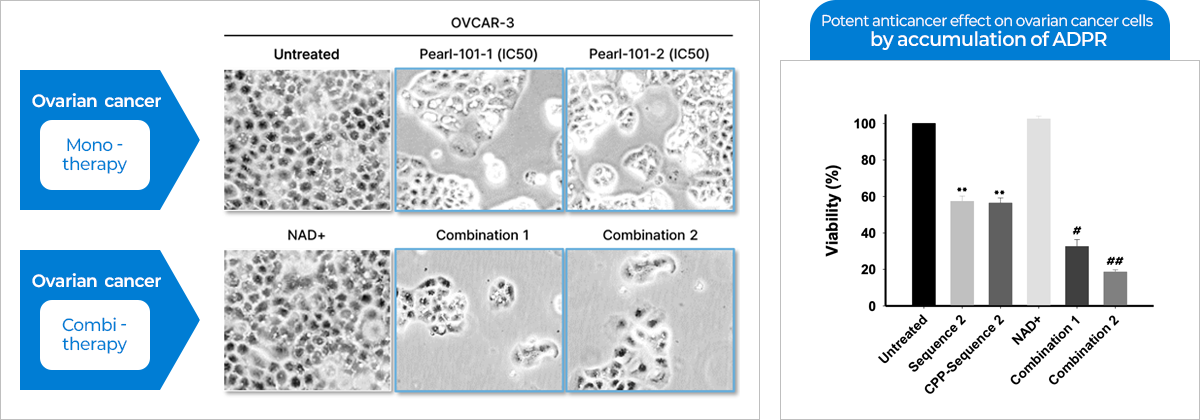
- Category 1: Overcoming therapeutic resistance with Pearl-101
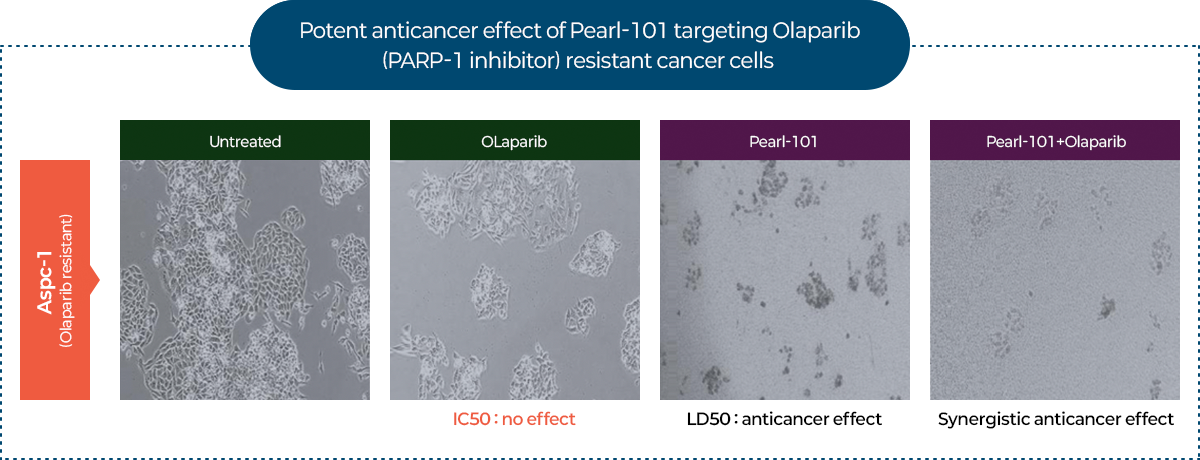
- Category 1: Pearl-101 anticancer effect on TNBC (BRCA-1 mt) xenograft model
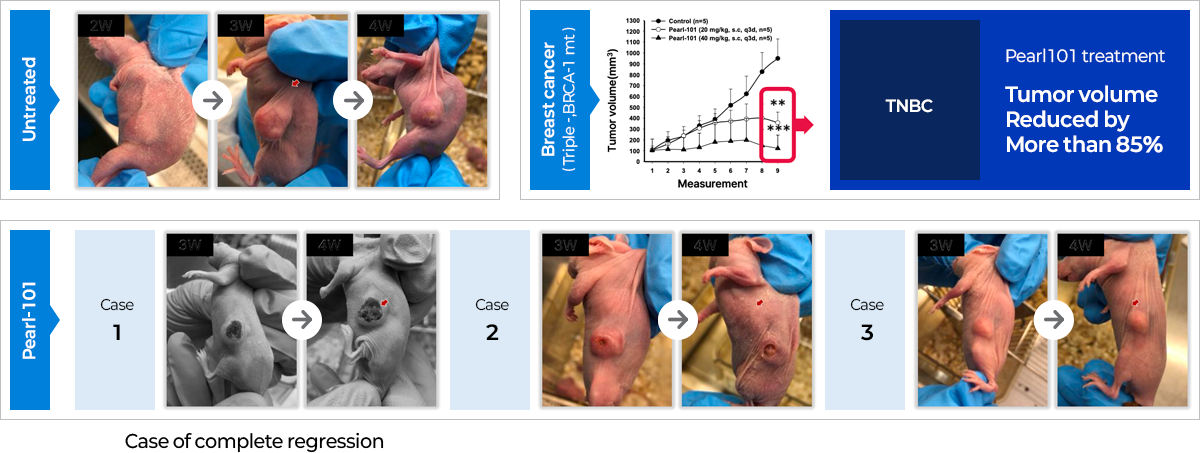
- Category 2: Epigenetic control
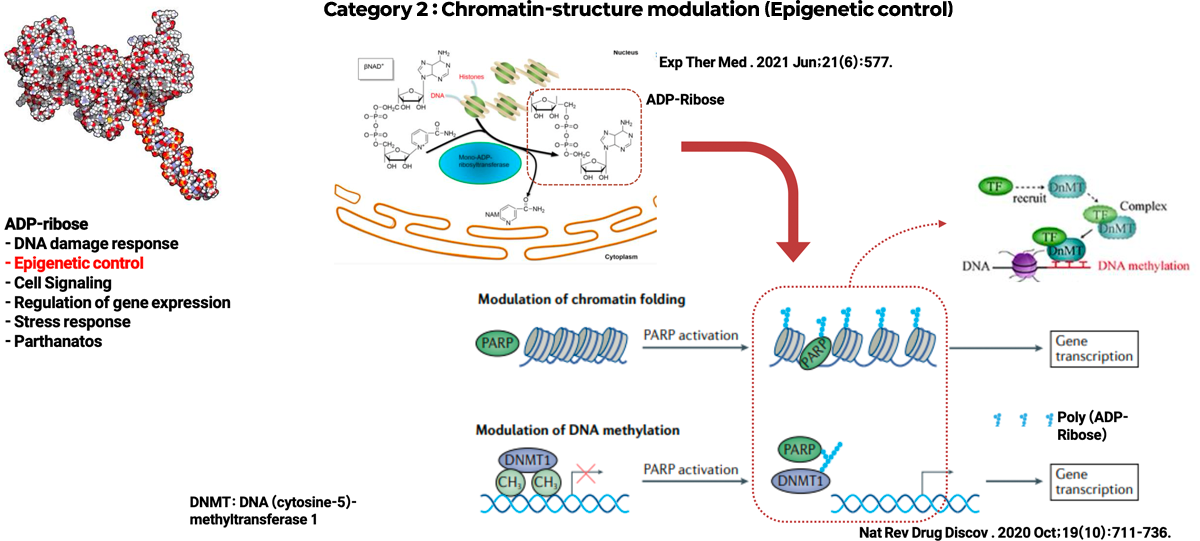
- Category 3: Regulation of cell signaling and gene expression
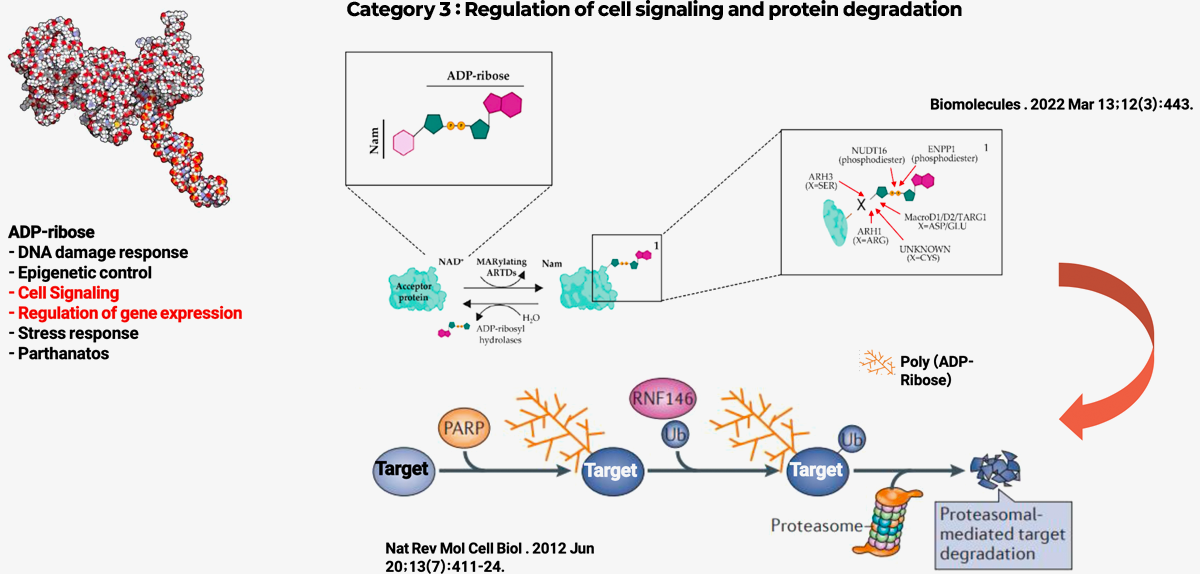
- Category 3: Regulation of cell signaling and gene expression
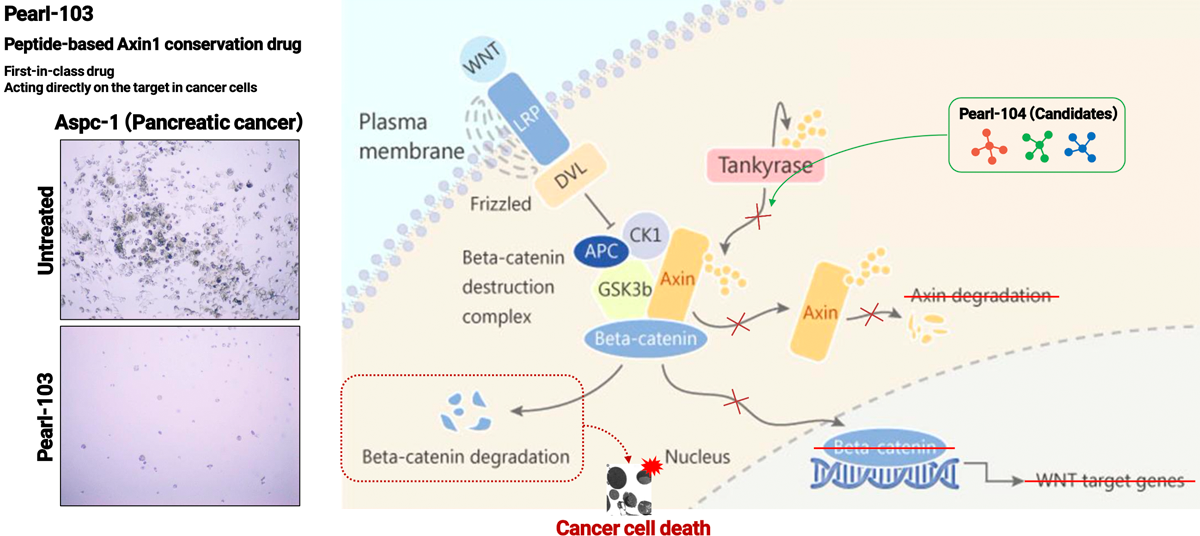
- Category 3: Regulation of cell signaling and gene expression
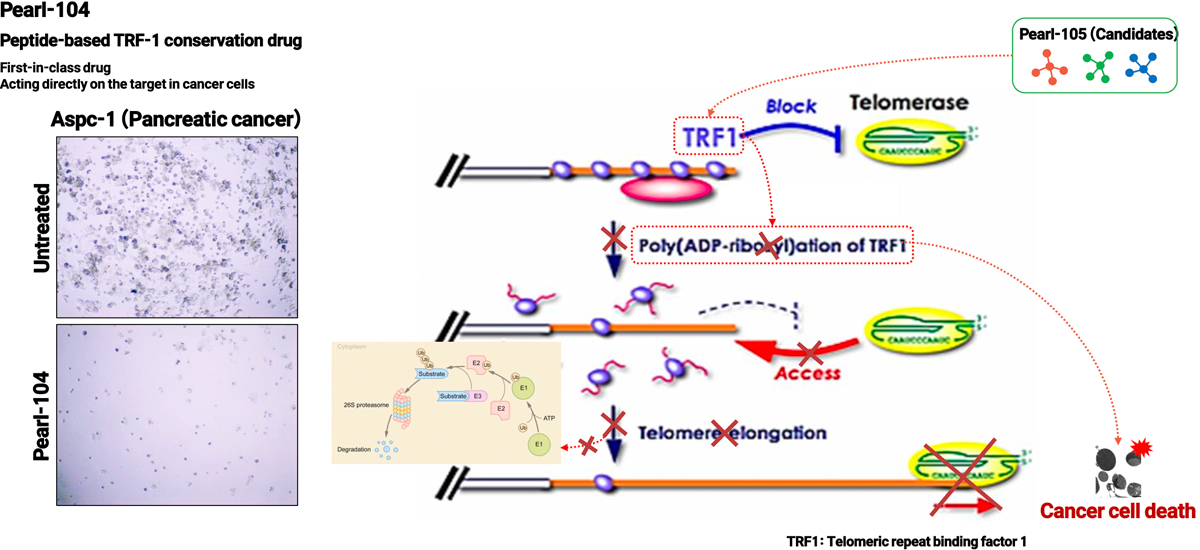
A systemic disease
- Bypasses the hair loss mechanism by disrupting DHT binding to the androgen receptor
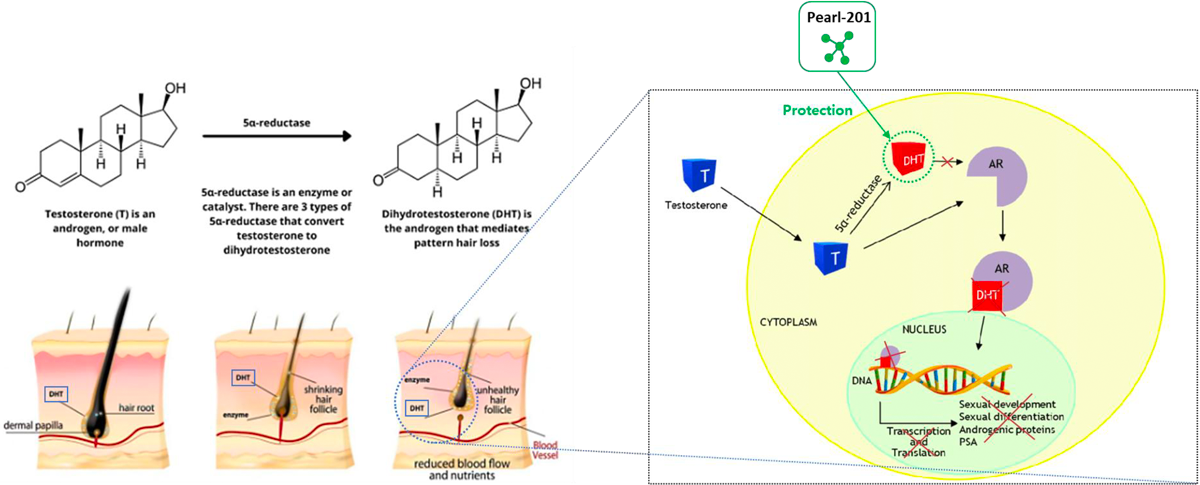
- Maximize hair growth by activating hair follicle stem cells (HFDPC)
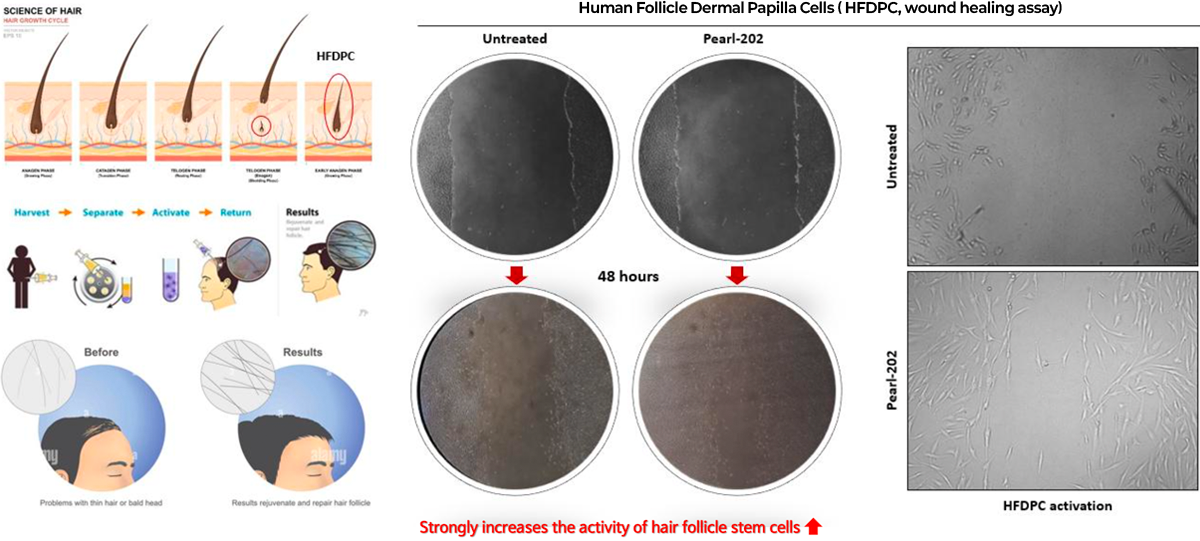
Patent
